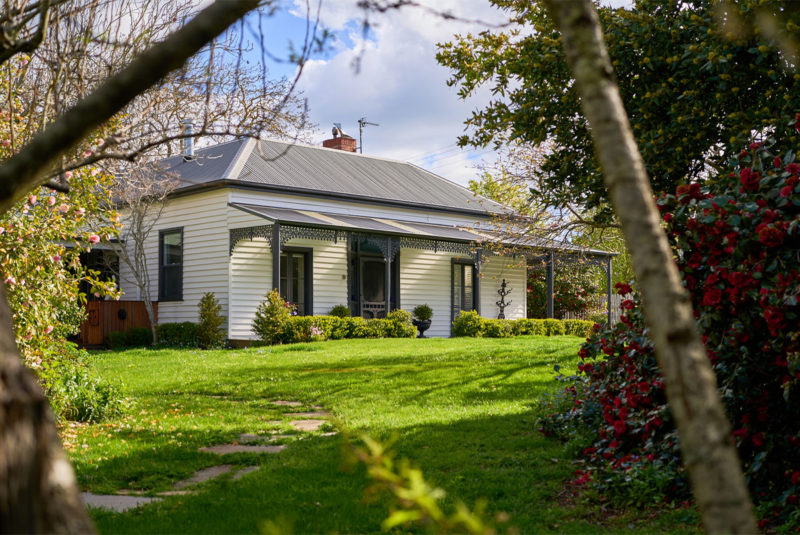Since the start of the COVID-19 pandemic and nationwide lockdowns, more Americans have been working from the convenience of their homes.
But what if you want to be your own boss from the convenience of your home?
Statistically speaking, you’ve got lots of company. Of the more than 32 million small businesses in the United States, around 26 million are no-employee businesses.[1] If – as some studies suggest – half of those no-employee businesses are home-based businesses,[2] that’s over 13 million home-based businesses operating in the U.S.
Starting a home-based business can be liberating and offer greater flexibility and independence. It’s also helpful for parents and caregivers who want to stay at home and care for family members.
But there are some drawbacks.
Like any business, there’s no guarantee that your business will be a success. And you may find it challenging to get the financing you need to start your own business. But that’s where we come in. Use our guide to help figure out how to bankroll your dream of becoming your own boss.
Preparing To Finance Your Home-Based Business
You can start many home-based businesses – like copywriting, coding, graphic design, virtual assistance or other services – with little to no money. If you do need startup cash, getting the financing to start a home-based business can be challenging – but doable.
Questions your lender will ask about your home-based business
Before a lender hands over any money, they’ll need to feel pretty confident about your ability to repay the loan.
- What kind of business are you starting? This is probably the most important question a lender will ask you. Home-based businesses can be anything from professional consulting services to cleaning and organizing to child care or pet care. You’ll need to demonstrate that you have the skills and experience to successfully operate the home-based business of your choice.
- Do you have a track record of success? If you’ve never owned and operated a business, you’ll need to demonstrate that you can effectively manage your home-based business, which will include submitting a business plan. If you can’t demonstrate projected profitability from the beginning, lenders may be less willing to approve you for a loan.
- Do you have business assets to use as collateral? Some business loans may require some kind of collateral. If you own a business with a physical location like a storefront, office or warehouse a lender may let you use those as collateral. However, lenders are less likely to use your home as collateral to back up the loan, especially if you’re still paying off the mortgage. You can either provide another asset for the loan, or you can take out an unsecured loan that requires no collateral instead. Just keep in mind that unsecured loans often have higher interest rates.
- Do you have a history of paying back loans? Crossing fingers that you’ve been staying on top of your mortgage payments or rent, student loans or car loan. A strong payment history signals how good you are at managing debt.
What you’ll need to apply for a small business loan
To demonstrate your creditworthiness, you’ll need:
- A good credit history: Your lender will look at your credit report and credit history, check your credit score and review your personal debt for any red flags before they offer you a loan.
- A stable financial base: The lender must verify that you have enough money in reserve to support yourself and manage any existing debt while you’re paying back the loan and building your business.
- A legal business entity: You’ll also want to set your business up as a separate legal entity, like a limited liability corporation, to keep your personal finances separate from your business finances. Getting good legal advice to ensure that you’ve chosen the right business structure and set up the business properly is a key first step.
- A business plan: You’ll need to present the idea for your business on paper, and you’ll need to add as much detail as possible. Explain how your business fills a critical need and how you intend to make money. Your business plan may also need to detail how you plan to spend the money you borrow.
Types of Financing for Your Home-Based Business
With these major elements in place, it’s time to start looking for financing to start your home-based business. There are a range of options available including loans, lines of credit and more. All come with their own benefits and challenges.
Small business loan
It’s all in the name: A small business loan is a loan offered by a bank or other lender for small businesses.
Small business loans can offer competitive interest rates, especially when compared to credit cards and personal loans. Some small business loans can be unsecured loans, which means you won’t have to put up any collateral to get the loan.
To qualify for a small business loan, lenders will have specific requirements that you’ll need to meet – but business experience also matters. Many lenders require that your business has been in operation for at least 2 years before they will consider lending to you.
If you’re a brand-new business, you may have to wait until you’re better established to apply for a small business loan.
$98.7 Billion
Total reported new lending to businesses through loans of $100,000 or less.[1]
Small Business Administration (SBA) loan
An SBA loan is a small business loan backed by the federal government. If you’re just starting out you’ll probably want to ask about a microloan.
Microloans allow you to borrow up to $50,000 to jump-start your new business or expand it. You can take up to 6 years max to repay a microloan, and the interest rates on microloans range from 8% – 13%.[3]
Later on as you grow your business, you can also look into 7(a) and 504 loans. These loans help larger businesses buy real estate or equipment to grow their business.
By the way, the SBA offers more than loans. When you’re connected to the SBA, you get access to tools, resources and networking opportunities that may help you build your business.
Lines of credit
A business line of credit is similar to a small business loan. The key difference is that with a small business loan you get a one-time, lump-sum amount that you pay back over time. Lines of credit work more like credit cards.
With a small business line of credit, you get a set amount of money to borrow against. Like a credit card, as you pay back what you owe, more credit becomes available for you to use – and you only pay interest on the money you borrow. Take a bit of advice from the personal finance space and pay off balances on your business line of credit as soon as you can.
Small business lines of credit can be especially helpful if your home-based business doesn’t have a predictable cash flow. If you’re running a tax preparation business, you’re probably really busy between January and April and generate less income for the rest of the year. A line of credit can help cover your costs during the leaner months.
Business lines of credit typically have interest rates that are comparable to small business loans, but you may not be able to borrow as much right away.
Tap into home equity
Maybe you need startup cash, but you don’t want to take out a business loan or line of credit. If you’re a homeowner, you may be able to access the equity in your home (the difference between the amount you owe and the appraised value of your home) with a home equity loan or home equity line of credit (HELOC).
Let’s say you owe $150,000 on your home, and it’s currently appraised at $300,000. That means you have $150,000 in equity.
Most lenders will only allow you to borrow up to 75% – 80% of your home’s value. If your home’s appraised value is $300,000, you may only be able to borrow against $240,000. So if you have a $150,000 mortgage, you’d only be able to borrow up to $90,000 ($240,000 – $150,000).
You may be able to get a competitive interest rate with a home equity loan or HELOC, but both are secured loans. Your home will serve as the collateral to secure the loan. If you default on either loan, you’ll run the risk of losing the home part of your home-based business.
Small business credit cards
If you own a personal credit card, you pretty much know how a business credit card works.
A business credit card allows you to keep your business purchases separate from your personal purchases. It can also help you build a credit profile for your business, which will come in handy when you’re ready to take out a business loan.
To apply for a business credit card, you must apply under the legal name of your business. If you haven’t legally set up your business and recorded your name with your state’s division of corporations, you can apply for a card under your name and sign up as a sole proprietorship.
Compared to personal credit cards, business credit cards may offer a competitive interest rate, a higher credit limit and more generous rewards on purchases.
Loans from family members or friends
So many entrepreneurs, maybe even your entrepreneurial inspiration(s), got their start by borrowing money from their parents, friends and family members. When you’re just starting out, your personal network can be an effective way to finance your home-based business.
Pro tip: If you borrow money from family or friends, make sure everyone sits down and hashes out a written agreement for the money. The agreement should clarify whether the money is a gift, a loan or an investment. If it’s a loan, you’ll need to make sure these questions are answered in the agreement:
- What are the loan terms? Is there a specific repayment period and interest rate?
- What’s the interest rate on the loan and how will it be calculated?
- Will the lender forgive the loan if your business fails?
- What collateral (if any) can the lender claim if you can’t pay the loan back?
- Is the lender entitled to a share of ownership in your business?
Writing everything down will protect you and whoever lends you money. In fact, you should consider getting the agreement reviewed by an attorney. Each party will need to have the loan documented for their taxes. And you’ll also need it if you plan to take out other business loans.
How To Use Home-Based Business Loans
Once you’ve secured your small business financing, the next question is how to use it to your benefit.
Invest in equipment
Your home-based business may likely need equipment before it’s up and running, including:
- A computer and/or printer
- Software to manage accounts and billing
- A subscription to a shipping service and postage
- Furniture and decor for your home office
If your business involves manufacturing or crafting, you may need to buy raw materials and cover the cost of specialized equipment.
Marketing
If your business exists but no one’s heard of it – does it really exist? You should be investing some portion of your money into building your brand and marketing your business from the start. Your marketing costs could include building a website, hiring a graphic designer or printing business cards or letterhead.
And it doesn’t end there. You may want to pay for online advertising, mailers and flyers, email marketing or newspaper advertising. Look for the approach that will effectively target your audience and give you the biggest bang for your buck.
Hire employees
Maybe you’re awesome at what you do (of course you are), but bookkeeping and marketing funnels aren’t your forté. Maybe you need help with deliveries. Using your money to get the help you need can be a valuable way to set your business up for future success.
But you don’t need to hire part-time or full-time employees while you’re in the middle of trying to get your business started. Before you start growing your staff, consider hiring freelancers to help you on an as-needed basis.
How Not To Use Home-Based Business Loans
This might seem obvious, but we need to say it. Any money you borrow for your home-based business should only be used on your business. You cannot use the money to pay yourself. Your eager customer base will do that for you! If you need to take out a business loan to pay nonbusiness-related bills, it may be a sign of financial trouble.
A Little Startup Capital Never Hurts
Is starting a home-based business challenging? The short answer is yes. But the longer answer is that being your own boss has the potential to be so rewarding. There are plenty of options out there to finance your at-home business needs. You just need to know where to look (and we’ve taken care of that part!). And you need to know how to make the most of the capital you’re able to secure. Good luck, boss!
The Short Version
- Home-based businesses can be anything from professional consulting services or cleaning and organizing to child care or pet care
- You can start many home-based businesses – like at-home copywriting, coding, graphic design, virtual assistance or other services – with little to no money
- You may need to borrow money to grow your business and cover a wide range of expenses
U.S. Small Business Administration. “United States Small Business Economic Profile.” Retrieved April 2022 from https://cdn.advocacy.sba.gov/wp-content/uploads/2021/08/30143723/Small-Business-Economic-Profile-US.pdf
U.S. Census Bureau. “Half of US Respondent Businesses Were Home-Based, Majority Self-Financed, Census Bureau Reports – Business Ownership – Newsroom.” Retrieved April 2022 from
U.S. Small Business Administration. “Microloans.” Retrieved April 2022 from https://www.sba.gov/funding-programs/loans/microloans




